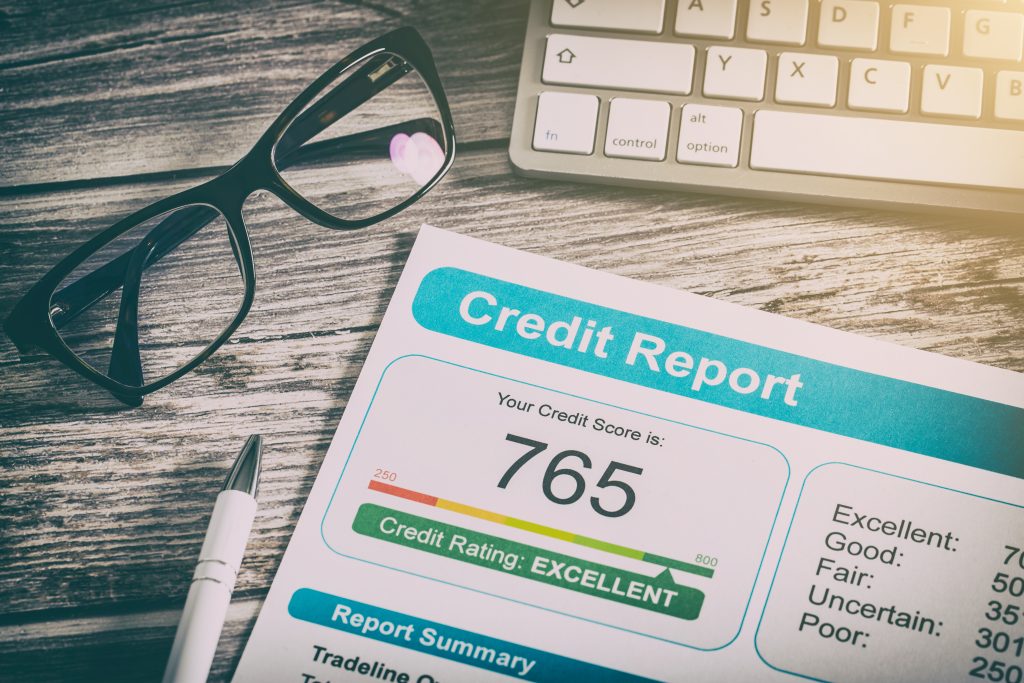
Your credit score is a numerical representation of your creditworthiness. It’s calculated based on your credit report information, and it can range from 300 to 850.
It’s vital to your financial status because it can affect your qualification to get a loan, the interest rate you will pay on a loan, purchase a car, and even your ability to rent an apartment or avail of any other purchases or services.
How Does Credit Score Work?
As mentioned above, the calculation of your credit score is based on the information in your credit report. Equifax, Experian, and TransUnion are the three national credit reporting agencies. Each of them collects financial information about you from banks, lenders, and other companies with whom you have done business. This information includes how much money you owe to others, how often you make payments on your debts like student loans, and how long you have had credit accounts.
The credit scoring model created by FICO (formerly Fair Isaac Corporation) is called the ‘FICO score.’ The score ranges from 300 to 850.
Credit Scores
Here’s how your credit score breaks down, according to FICO:
- 95% of lenders use FICO scores to make lending decisions.
- 30% of your score is based on how you’ve handled credit in the past.
- 35% of your score is based on what you currently owe.
- 15% of your score is based on how long you’ve had credit.
- 10% of your score is based on new credit.
Score Range
Here’s the credit score range, according to FICO:
- 300-499: Poor credit
- 500-599: Marginal credit
- 600-649: Fair credit
- 650-699: Good credit
- 700-749: Excellent credit
- 750-850: Perfect credit
Your credit score is not static. It can change over time as your financial circumstances change.
Credit Strong vs Self
When it comes to credit, you’re either Credit Strong or Self.
Credit Strong vs self is a term that refers to the different ways people view their credit. There are two types of individuals regarding finances: those who see their credit as their personal finances’ extension and those who see it as a separate entity.
Those who are Credit Strong identify with their credit score. They maintain a high score and keep their accounts in good standing. They understand that a high credit score is beneficial when it comes to renting an apartment, applying for loans and rates on utilities, and even getting a job.
Those who are Self think differently about their credit score. They don’t care about their score or how many accounts they have in collections. It’s because they only view their credit as a tool that can be used to take advantage of.
What It Says About You Financially
Now that you know what a credit score means, you can take steps to improve your score if necessary and enjoy the benefits of a good credit rating. Here are things your credit score statistics say about you financially:
- You Are Responsible With Money
First of all, your credit score reflects how responsible you are with your finances. A high credit score means that you have a history of paying your bills on time, while a low credit score means you may have had trouble paying bills in the past, or you may currently be delinquent on some accounts.
Your score also considers your debt utilization ratio, which is how much money you owe in total concerning your available credit. If you’ve already maxed out all of your credit cards and are in debt, that will negatively reflect your credit score.
It’s been said that the average person who has a credit score of 700 or higher is considered to be a low-risk borrower.
- You Make Payments On Time
Aside from being responsible with your money, one of the biggest factors in your credit score is how often you make payments on your debts.
Credit bureaus want to know that you can handle paying them back money on time before giving you a new loan or line of credit, and they need proof that you have done this in the past. If you’ve never made a late payment, then your credit score will be higher than someone with a history of making late payments.
Your credit score predicts the likelihood of you becoming delinquent on a loan. A high score means you are less likely to become delinquent, while a low score may mean you are more likely to miss payments.
- Your Debts Are Manageable
Your credit score also considers how much money you owe to others concerning your income. If your total debt is far less than the amount of money you make, then that can help boost your credit score. Having too much debt negatively affects your credit score.
Lenders may tag or classify you as a high-risk borrower because you may be unable to afford to make payments on your debts.
- You Are Capable Of Making Large Payments
Another thing your credit score tells about you is how much money you owe in total. If you have a lot of debt in your account and make large payments each month, you get a better credit score.
However, if your total loan amount is high, but you only make small payments each month, it could hurt your credit score. It shows the lender that they may not count on you to pay back all of your debts in full and could view you as a risky borrower.
- You Have A Good Mix Of Credit Accounts
The mix of accounts you have also affects your credit score. If you only use one type of credit account, such as a credit card, that could negatively impact your credit score.
However, if you have a mix of different types of credit accounts, such as a credit card, a mortgage, and a car loan, then that will positively affect your credit score. It shows the lender that you can handle different types of debt and not just rely on one type of credit.
- You Can Handle New Financial Obligations
Your financial status and credit score also reflect your ability to handle new financial obligations. A high credit score indicates that you are in an ideal position to take on new debt, while a low credit score may mean that you cannot currently manage any new debts.
- Your Likelihood For A Loan Approval
Your credit score also indicates how likely you are to be approved for a loan or line of credit. A higher score offers you a better chance of being approved for a new loan.
A good score also indicates a good likelihood of being approved for a larger loan with lower interest rates. Having a low credit score may lead to hard chances of being approved for a new line of credit or being forced to accept higher interest rates and thus pay more in the long run.
- You’ll Likely Receive Low-Interest Loan Rates
Your credit score also affects the interest rates you will receive on a loan. A higher credit score implies you’re likely to get lower interest rates.
A higher credit score can benefit you when you need to take out a loan, as it means you could save money in the long run. For example, if you get a loan with high-interest rates and it takes you a long time to pay it off, that could cost you more than the loan itself. On the other hand, a lower interest rate will allow you to pay off the loan faster and ensure you’re not paying too much in the way of interest.
- You’re Eligible For Rewards Credit Cards
Lastly, your credit score indicates your eligibility for rewards credit cards. A high credit score means a higher probability of approval for a rewards card. While a low credit score implies, you’re not eligible.
Rewards cards offer travel points, cashback, and other perks. If you use your credit card for everyday or frequent purchases, then a rewards card could save you quite a bit of money.
How Can I Improve My Credit Score?

If your current credit score makes you unhappy, there are steps you can take to improve it. These include:
- Paying off debts: The most obvious way to improve your credit score is by paying off any outstanding debts on time. Do not open new lines of credit unless necessary.
- Avoid closing credit accounts: When you close an account, it has the effect of reducing your credit available. Closing limited credit accounts may not have a significant impact, but closing unused credit cards can severely reduce your score.
- Getting help from a credit counselor: This professional can work with you to create a plan that’ll help you get back on track financially and improve your credit rating.
In addition to these tips, you can also monitor your credit by using a credit monitoring service. It’ll help you keep track of your credit score and ensure no errors in your report.
Final Notes:
Some people might think having a good credit score doesn’t matter because they don’t plan on borrowing money or taking out loans anytime soon. However, it’s important to remember that your credit score will also affect the interest rates on any loan, including mortgages and car loans.
Your credit score can say a lot about you financially. By understanding what your score means, you can take steps to improve it and ensure your financial future.